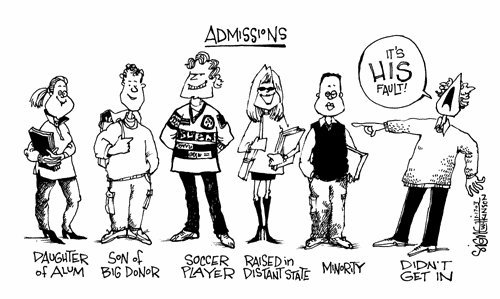An all-too common complaint about assertive anti-racism; that is, taking steps to correct for injustices borne of systemic racism – like affirmative action programs or race-based scholarships – is that it ends up putting white people at a disadvantage. After all, if there are two people going for the same spot, whether it be a job or a university admission slot, and one of them is a visible minority, affirmative action policies discriminate against someone whose only crime was being born white.
Everyone and her brother has a story of a cousin’s friend or aunt’s next-door neighbour who lost out on a job ze was qualified before because it instead went to a less-qualified person of colour (PoC). If we are trying to do away with racism, why is it that it’s okay for the system to be racist against whites? Aren’t we sacrificing the future of white people on the altar of correcting historical injustice? When do we stop over-correcting?


